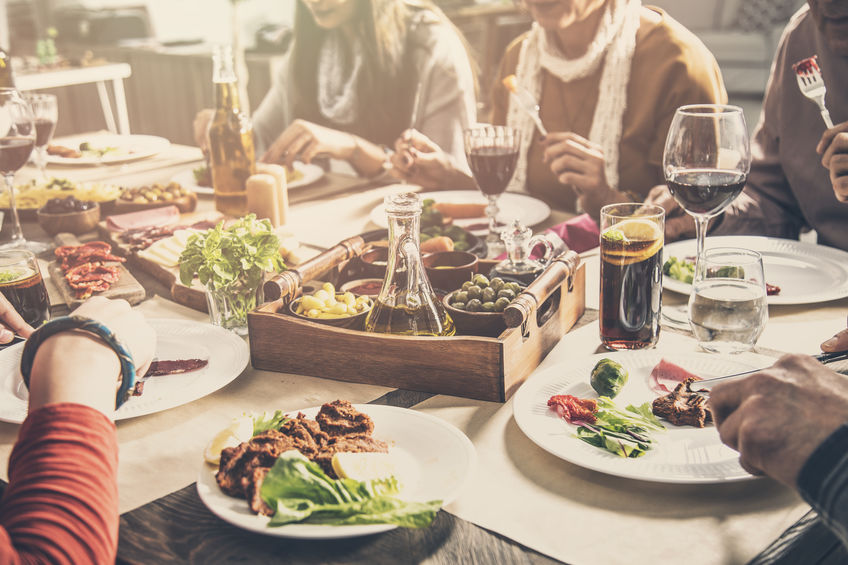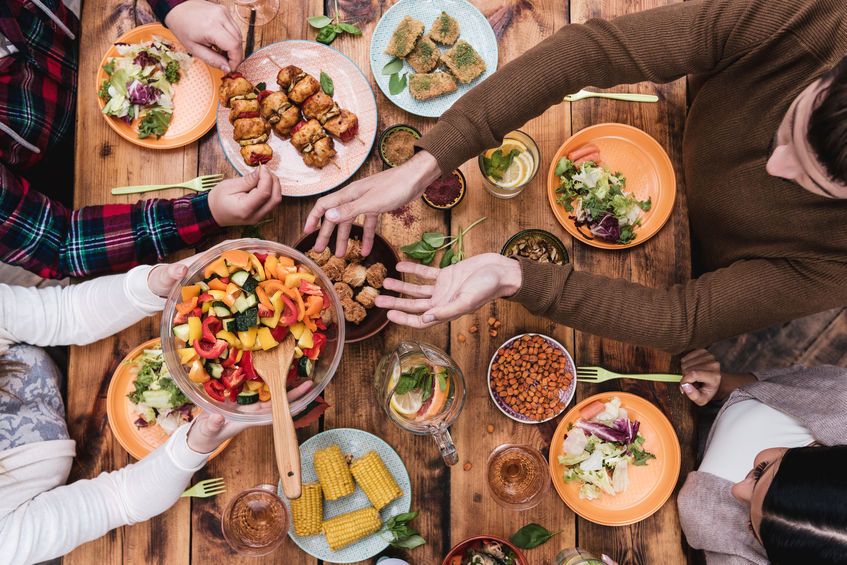Reviving the Family Dinner -
What Better Time?

The family dinner has, in recent years, been consistently hindered by any number of activities – school events, sports practices, differing work schedules, etc. But for now, most everyone is home. What better time to revive or begin a family tradition?
Sharing at least one meal each day not only brings your family or household members together, it encourages sharing and participation in each other’s lives, provides a sense of security in these insecure days, and teaches cooperation and teamwork.
Planning Your Family Dinner
With shopping not as convenient as it has been, advance planning for all meals and snacks is essential. If you can make a weekly or bi-weekly meal plan and stick to it, it will be easier to keep a stock of pantry staples and shop or order special ingredients for certain meals.
Depending on your household, preparing meals will have a variety of scenarios. But whether you have a home with roommates, mixed generations of family members, adults with small children, or adults with adult children, there are ways everyone can pitch in:
- Everyone can contribute to decisions on the meal plan. Perhaps each household member chooses a favorite dish for each night of the week or you might have a rotation of regular meals with a chosen special meal one or two times a week.
- What meal will everyone share each day? All of them or just one? (It doesn’t have to be dinner.)
- Decide who will prepare each meal.
- Prayer, blessing, or invocation?
- Who will set the table? For younger children, this is a terrific table etiquette exercise. Find various “table setting maps” here.
- Who will clear the table after the meal?
- Who will clean the kitchen?
Each of these decisions helps encourage involvement and group decision-making from everyone in your household.
Fun with Table Manners
The practice of etiquette has always begun at home. Why not use this time together to implement daily lessons for everyone?
Choose a host for the meal.
The host determines the beginning of the meal when she places her napkin in her lap and ends the meal when she places her napkin to the left of her place setting. The host may also begin the table conversation – or change the subject if it is not going well – and start the passing of food around the table.
Encourage positive togetherness.
Try and keep all conversation topics positive. A separate family meeting for discussing problems, serious challenges, or disagreements would be best. Encourage open sharing and participation by not allowing interruptions or condescension. Keep electronic devices in another room during your family dinner.
Make learning table manners fun rather than instructional.
Review table manners with your children at a different time instead of during a meal, teaching the Continental and American dining styles as preparation for your meals together. But during the meal, you could make table manners a topic of conversation by asking everyone to share his or her most important etiquette tip.
End the meal on a grateful note.
When the host ends the meal by placing his napkin to the left of where the plate is/was, everyone else at the table follows suit. A wonderful practice just before leaving the table is to thank the person or people who prepared the meal and set the table. Gratitude is always meaningful, but even more so today.
What You Can Look Forward To
One way to look at this time that we are forced inside our own homes is that we have an opportunity to build skills, habits, and routines that we can carry forward when our usual schedules resume.
Some advantages of implementing a family dinner now are:
- Family members will look forward to an orderly, engaged time together.
- Regular mealtimes will cut down on food grazing and negative food habits in the kitchen.
- Shared meals help families and household members gain a sense of togetherness.
- You will have promoted and set an example of life skills learning that will translate into more comfortable and confident people.
- When restrictions are lifted and we’re back to more normal lifestyles, you will be grateful for the time you took to teach your family how to dine together respectfully. These skills make for happy and mannerly dining situations in the future.
A most important thing to remember as you begin this project: It won’t go perfectly and may even be a long learning process. But stick to it and you will be happy you did.
You may also enjoy reading . . .
 Visit my Blog for more etiquette articles
Visit my Blog for more etiquette articles












